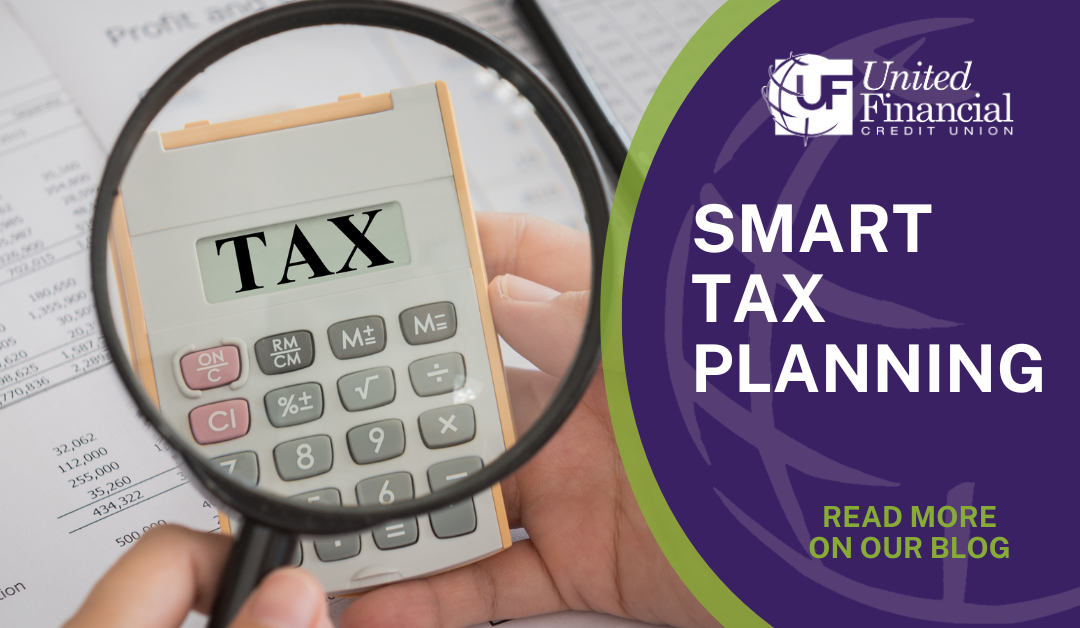As the year winds down, it's not just the holidays that should be on your mind. Smart tax planning at the end of the year can make a substantial difference when it comes time to file! (Note: The tax filing deadline is generally April 15th.) By implementing strategic tax moves now, you can ensure a smoother filing process and potentially increase your tax return!
Maximize Your Retirement Contributions
Depending on the type of retirement account you have whether it is a 401(k) or a Roth IRA, you might be able to deduct your contributions from your taxable income. Check the contribution limits and aim to contribute the maximum amount if possible. Not only does this help you build your nest egg, but it can also reduce your taxable income.
Review Potential Deductions
From charitable contributions to home office expenses, make sure you're keeping detailed records of potential deductions. If you haven’t been keeping track of those items, you’ll want to gather every record you can find before filing taxes. If you itemize tax write-offs, this can make a big difference in your tax return:
- Charitable Donations: Donating to registered nonprofits can result in tax write-offs. This can be in the form of money, goods, or even stocks.
- Medical Expenses: If you've had significant out-of-pocket medical expenses, you may be eligible to deduct some of them.
- Mortgage Interest Paid: You may be able to deduct the interest paid on a home loan.
Use Up Your FSA
Flexible Spending Accounts (FSA) often require you to use the funds by the end of the year or risk losing them. If you have an FSA, consider scheduling last-minute medical appointments or buying approved medical equipment to use up those funds.
Harvest Tax Losses
If you have investments in non-retirement accounts, consider selling off those that have underperformed. The losses can offset any capital gains you may have, potentially reducing your tax liability.
Defer Income
If possible, and especially if you anticipate being in a lower tax bracket next year, consider deferring some of your December income to January. This might involve delaying invoices if you're a freelancer or self-employed.
Check Your Withholding
Ensure that you've had enough taxes withheld from your paycheck to avoid any penalties. If you think you'll owe money, consider making an estimated payment to reduce your potential penalties.
Bundle Deductible Expenses
Certain expenses can be bundled to maximize your deductions. For instance, if you're planning a significant medical procedure, it might make sense to do it in a year when you have already incurred high medical costs to exceed the standard deduction threshold.
Invest in Tax-Efficient Funds
Consider tax-efficient investing strategies, such as tax-managed funds or index funds, which tend to realize fewer capital gains than actively managed funds.
Gift Wisely
If you're planning to leave an inheritance or just give money to loved ones, remember that you can gift up to $18,000 per individual (as of 2024) without incurring the federal gift tax. This can be a strategic way to reduce your taxable estate while supporting your loved ones.
Stay Updated on Tax Laws
Tax laws can and do change. Whether it's adjustments to standard deduction amounts or new potential credits, staying informed can help you make the most of your tax situation. Consider consulting a tax professional to ensure you're taking advantage of all potential benefits.
Start Early and Skip the Stress!
While taxes might be inevitable, tax headaches aren't. By taking proactive steps at the end of the year, you can position yourself for a more straightforward and potentially less costly tax season. The key is to plan ahead, keep detailed records, and when in doubt, seek professional advice to ensure you're on the right track. Remember, a little effort now can pay off in significant dividends come April.

